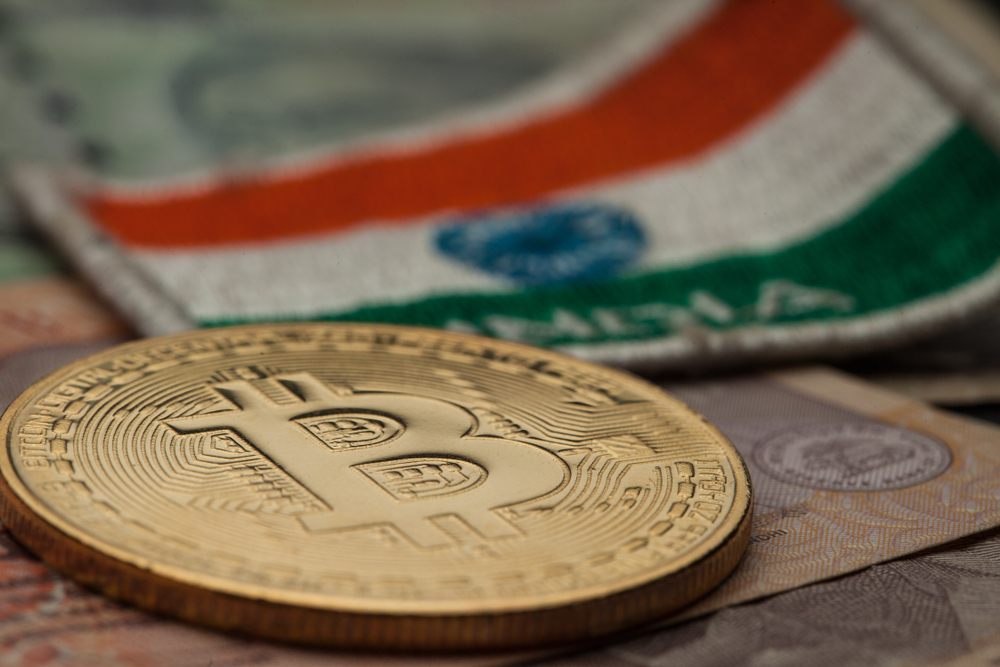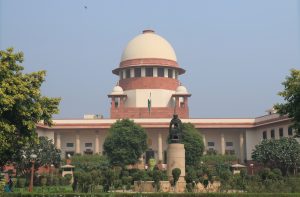
If you thought crypto in India was over, you were probably wrong. According to a recent statement by a high-ranking official, the long-awaited regulations are on the way. A draft framework has been prepared, and authorities in Delhi hope to “wrap this up” as early as the first half of next month. Meanwhile, the Supreme Court has agreed to review a petition against the RBI ban earlier than expected, resetting the hearing for July 3.
Also read: Taiwan’s Financial Regulator to Conduct Limited Oversight of Cryptocurrencies
Committee Decides the Fate of Bitcoin in India
The new Indian regulatory framework for cryptocurrencies is likely to be presented in the first half of July, according to a recent statement by Subhash Chandra Garg, Secretary of the Department of Economic Affairs at the Ministry of Finance.
A draft has been put together and will be discussed in the first week of next month, the official said in an interview with the news channel ET Now. Garg, who is heading the committee tasked to determine the future of Bitcoin in India, explained:
We are fairly close to developing a kind of template which we think might be in the best interest of our country. We have prepared a draft which we intend to discuss with the committee members in the first week of July.
The Finance Ministry representative also noted that the committee has made a lot of progress in regards to determining “what part of business should be banned, what should be preserved, and what not.” In his words, the lower detail work has already happened. “We should be in the position to wrap this up in the first fortnight of July,” he elaborated.

Assets, Not Currencies, Still Valuable for Some
In previous comments, Mr. Garg said the Indian government “does not read this [cryptocurrency] as currency” and would not allow its use in the country’s payment system. This, he explained, means the executive power “would do something to eliminate” the illegal use of “crypto assets.” Nevertheless, he recognized that some people may still find value in cryptocurrencies and that would require introducing certain regulations so that crypto transactions are legal and transparent. Earlier reports that the roles of regulators had been decided and that the new rules were coming soon were not confirmed by concrete actions.
Subhash Garg also noted that cryptocurrency exchanges in India are not regulated and indicated that the upcoming regulations would introduce legal requirements for know your customer procedures and record keeping for transactions. In February, he expressed hope that his committee would finalize its recommendations within this financial year. Then, legal changes would have to be made and regulatory responsibilities assigned. Indian media points out, however, that the panel headed by Garg is the second body formed to come up with a solution, after the first committee failed to complete the task.

Indian authorities have been sending mixed signals about the future of cryptocurrencies, along with issuing warnings and applying restrictive administrative measures. In his budget speech in February, Finance Minister Arun Jaitley reiterated the official position that cryptocurrencies are not recognized as legal tender and said the government will crack down on their use for illegal activities. Since then, the Income Tax Department has issued notices to thousands of crypto investors accusing them of tax evasion. For its part, the Reserve Bank of India ordered all regulated financial institutions to quit providing services to businesses and individuals dealing in cryptocurrencies. Nevertheless, there are voices within the Indian government that insist Bitcoin has its place in India.
Supreme Court Resets Hearing Date to July 3
The RBI gave commercial banks three months to comply with its directive formally motivated with the need to protect consumers and prevent money laundering. Recently, the central bank admitted it had done no proper research into cryptocurrencies before issuing its circular. In the past few weeks, local exchanges have been preparing for the ban by terminating fiat deposits and withdrawals while launching and expanding crypto-to-crypto trading.
 A number of Indian crypto companies filed petitions against the restrictions that eventually reached the Supreme Court, which barred all other courts from accepting new petitions. The hearing was initially set for July 20, two weeks after the RBI comes into effect, on July 5, which triggered protests by the members of the country’s crypto community.
A number of Indian crypto companies filed petitions against the restrictions that eventually reached the Supreme Court, which barred all other courts from accepting new petitions. The hearing was initially set for July 20, two weeks after the RBI comes into effect, on July 5, which triggered protests by the members of the country’s crypto community.
One of the companies that has filed a petition challenging RBI’s measures is the operator of the Indian exchange Coinrecoil, Kali Digital Eco-Systems. Its co-founder and director, Kunal Barchha, told news.Bitcoin.com that the Supreme Court has rescheduled the hearing for an earlier date on request by one of the other petitioners – the Internet and Mobile Association of India (IAMAI). The review is now set to take place on July 3, before the enforcement of the ban. Mr. Barchha also said that Coinrecoil’s lawyer will file a similar request on July 2 and he expects the court to honor it.
Do you think Indian authorities will eventually adopt looser regulations on cryptocurrencies and crypto transactions? Share your expectations in the comments section below.
Images courtesy of Shutterstock.
Make sure you do not miss any important Bitcoin-related news! Follow our news feed any which way you prefer; via Twitter, Facebook, Telegram, RSS or email (scroll down to the bottom of this page to subscribe). We’ve got daily, weekly and quarterly summaries in newsletter form. Bitcoin never sleeps. Neither do we.
The post Indian Crypto Regulations Ready in July, Official Reveals appeared first on Bitcoin News.

Bitcoin.com is author of this content, TheBitcoinNews.com is is not responsible for the content of external sites.
Our Social Networks: Facebook Instagram Pinterest Reddit Telegram Twitter Youtube










